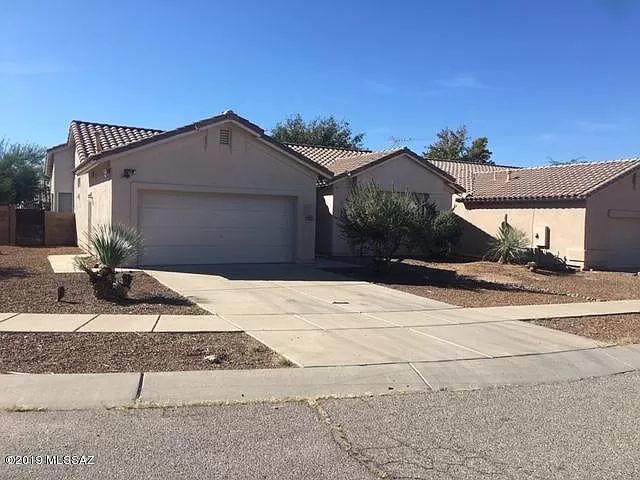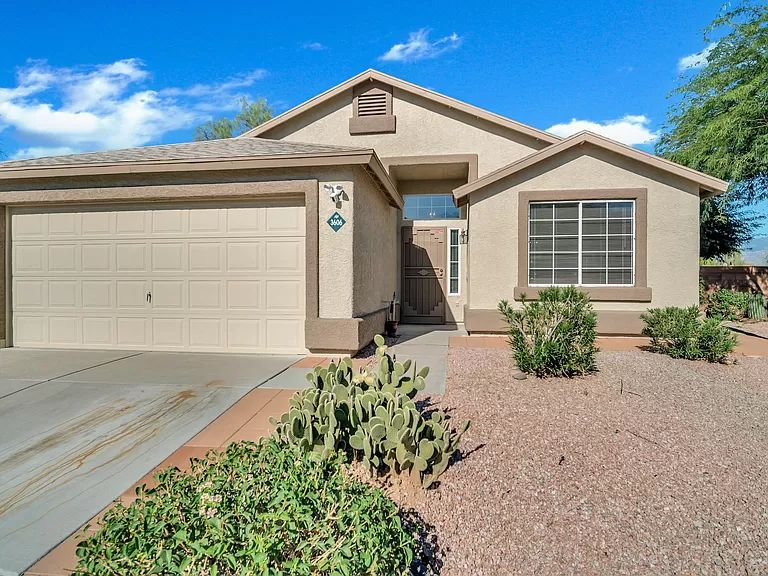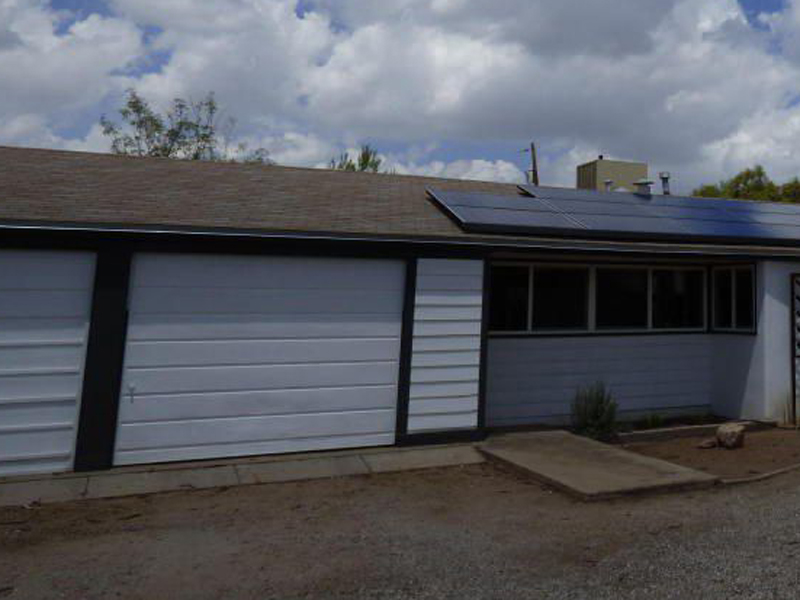Garage Door Won't Raise - Usual Causes & Easy Fixes
Is Your Garage Door Stuck? Below's What to Do Very first
When your garage door will not open up, start with these crucial safety checks before trying any kind of fixings. First, ensure nobody is standing near the door and that vehicles are free from the opening. Seek evident indicators of damage like broken panels, bent tracks, or hanging cables. If you see a snapped springtime or badly damaged components, stop promptly and call an expert—-- these repair work need specialized devices and competence to take care of securely.

Check These 6 Points Prior To Calling a Specialist
Prior to assuming you require pricey repair work, go through this quick diagnostic checklist that solves most website garage door problems:
-
Power source: Confirm the opener is plugged in and the outlet is functioning
-
Remote batteries: Change dead batteries in your remote
-
Hand-operated lock: Inspect if somebody accidentally engaged the hand-operated lock
-
Blockages: Try to find debris obstructing the door's course or sensing units
-
Emergency launch: Ensure the red emergency cable hasn't been pulled
-
Breaker: Verify the garage circuit hasn't stumbled
These easy checks deal with about 70% of garage door problems without needing expert intervention.
10 Usual Reasons Your Garage Door Will Not Open
Comprehending why your garage door opener isn't functioning assists you select the best solution. Here are one of the most frequent reasons homeowners experience:
Dead remote batteries represent the simplest solution—-- when batteries die, the remote can't send out signals to the opener. Power outages or tripped breakers reduced electrical energy to the motor. Busted springs stop the door from lifting appropriately and call for prompt expert attention. Sensor imbalance causes safety and security systems to block door procedure. Track obstructions quit rollers from moving efficiently. Electric motor overload triggers automatic shutoffs when the opener discovers resistance. Limitation switch troubles perplex the opener concerning door setting. Cable damages disrupts the lifting device. Weather-related issues impact door movement during extreme temperatures. Element wear from age slowly lowers system performance.
Problem # 1: Dead Remote Control Batteries
When your wall button functions yet your remote does not, dead batteries are normally the wrongdoer. A lot of garage door remotes use either 3-volt lithium or 12-volt alkaline batteries. Eliminate the back cover of your remote and examine the battery kind. Change with fresh batteries and examine the remote. If it still does not work, you might need to reprogram it to your opener. Consult your opener's handbook for certain reprogramming directions, as the procedure varies by supplier.
Trouble # 2: Power Supply Issues
Garage door power problems usually come from loosened links or stumbled circuits. Check that the opener is strongly connected into its outlet—-- resonance can loosen connections over time. Evaluate the electrical outlet with another device to verify it's functioning. Analyze your home's breaker box for tripped circuits, especially if you have actually experienced tornados or power fluctuations. GFCI outlets may have tripped and require resetting. If the opener has power but will not respond, the problem likely lies in other places in the system.
Issue # 3: Broken or Damaged Springs
Damaged garage door springs are amongst the most hazardous parts to manage. If you hear a loud bang from your garage or observe the door feels exceptionally hefty when trying to raise by hand, a spring has most likely broken. Torsion springtimes run flat above the door, while extension springs rest on either side. Never ever attempt spring fixings yourself—-- these parts save significant stress that can trigger major injury or fatality. Professional substitute commonly sets you back $150-$300 but guarantees your safety.
Problem # 4: Obstructed Safety Sensors
Modern garage doors feature safety and security sensors that prevent closure when items are found. These sensors can stop the door from opening up if they're filthy, misaligned, or blocked by particles. Clean sensing unit lenses with a soft cloth and make sure nothing obstructs the unseen beam between them. Examine that sensing units are correctly lined up—-- a lot of have indication lights that show link condition. Sensing unit problems commonly settle with basic cleaning and adjustment.
Issue # 5: Track Obstructions or Damage
Garage door tracks overview rollers as the door goes up and down. Dust, debris, old oil, or tiny objects can jam the system. Examine tracks visually and eliminate any type of blockages with a brush or cloth. Search for dents, bends, or warping that could restrain smooth procedure. Small track changes are possible for handy home owners, however substantial damages calls for specialist fixing to avoid additional problems or safety hazards.
Problem # 6: Garage Door Opener Electric Motor Issues
When the garage door electric motor runs but the door does not relocate, a number of concerns could be accountable. The motor may be strained and shutting down as a safety measure. Equipment wear, especially in older units, can protect against correct operation. Chain or belt drive problems influence power transmission. If you listen to unusual grinding, clicking, or humming sounds, quit making use of the opener promptly. Motor repairs commonly set you back greater than substitute, especially for devices over 10 years old.
Step-by-Step DIY Troubleshooting Overview
Follow this organized strategy to garage door troubleshooting while focusing on security throughout the process:
Step 1: Evaluate the wall surface button initially. If it functions yet the remote doesn't, focus on remote problems. If neither jobs, check power supply.
Action 2: Analyze the hands-on launch cable. If it's been pulled, the opener is disengaged from the door. Push the trolley back to reconnect.
Step 3: By hand check the door by disengaging the opener and trying to raise the door by hand. It must move smoothly and stay in location when half-open.
Step 4: Examine noticeable elements for damages, paying special attention to springs, cable televisions, and tracks.
Step 5: Inspect all safety attributes including sensing units, restriction buttons, and auto-reverse functions.
Step 6: Test various controls (remote, wall button, keypad) to separate the issue source.
Constantly use safety glasses and job handwear covers when executing inspections, and never ever attempt repair work on springs or high-tension components.
When to Call a Professional vs. DIY Solutions

Knowing when to call a garage door specialist versus trying do it yourself fixings secures both your security and your pocketbook. Deal with these concerns on your own: dead remote batteries, power supply troubles, minor track cleansing, sensor cleansing and positioning, and basic lubrication.
Never try these repair work on your own: springtime substitute or adjustment, cord repair work, major track realignment, electric circuitry issues, opener motor replacement, or any kind of repair work entailing high-tension components. Specialist specialists have actually specialized tools, training, and insurance coverage to take care of harmful repair services securely.
Take into consideration repair work costs versus substitute expenses, especially for doors over 15 years of ages. Modern garage doors offer better safety attributes, energy efficiency, and dependability than older versions.
Emergency Garage Door Solutions
When you're stuck to a garage door that won't open up and require immediate gain access to, comply with these emergency treatments:
Guidebook Procedure: Draw the red emergency situation release cord to disengage the opener. This permits manual operation but requires correct method to prevent injury. Raise the door gradually and equally, utilizing leg muscle mass instead of your back. Most property doors evaluate 100-150 extra pounds, making them manageable for the majority of grownups.
Short-lived Repairs: If the door opens manually but won't keep up, prop it open with sawhorses or clamps—-- never ever utilize your body or vehicles as assistances. For doors that will not close completely, make sure the opening is secured if you should leave.
Emergency situation Service: Many garage door firms offer 24/7 emergency situation solution for circumstances including protection issues, trapped lorries, or complete system failures. While a lot more pricey than regular solution calls, emergency situation repair services provide instant remedies when required most.
Safety Caution: What NOT to Do
Garage door safety calls for understanding hazardous fixings that should never ever be tried by homeowners:
Never try to repair springtimes—-- they keep sufficient energy to cause fatal injuries when they snap or are incorrectly handled. Don't compel a stuck door—-- this can damage the opener, tracks, or door panels, creating much more pricey troubles. Stay clear of bypassing security attributes—-- sensors and auto-reverse devices stop serious injuries and home damage.
Don't overlook unusual sounds—-- grinding, scuffing, or banging noises suggest issues that get worse with time. Never ever make use of the door if wires are frayed or broken—-- the door can drop all of a sudden. Do not try electric repair work unless you're a qualified electrician—-- garage door openers use both 120V house existing and low-voltage control circuits.

Preventive Upkeep to Prevent Future Troubles
Routine garage door maintenance prevents most common issues and expands system life-span significantly:
Regular monthly Jobs: Aesthetic evaluation of all components, examining auto-reverse safety and security features, checking and tightening up hardware, and cleaning tracks and sensing units.
Quarterly Tasks: Lubing all relocating get rid of ideal garage door lube, testing handbook operation, and inspecting weather securing.
Annual Tasks: Specialist inspection and tune-up, springtime modification if needed, and opener maintenance consisting of belt or chain adjustment.
Seasonal Tasks: Preparing for weather extremes, checking insulation, and changing opener settings for temperature changes.
Regular maintenance costs much less than emergency situation repair services and makes certain dependable operation year-round.
Garage Door Will Not Open Up FAQs
Why won't my garage door open with the remote yet deals with the wall switch?
This typically suggests dead remote batteries, signal disturbance, or the need to reprogram the remote. Check batteries initially, after that consult your opener guidebook for reprogramming instructions.
Can I manually open my garage door if the power is out?
Yes, draw the red emergency release cable to disengage the opener, after that lift the door by hand. Be prepared for the door's full weight and lift with correct method to stay clear of injury.
Just how do I understand if my garage door springtime is damaged?
Signs consist of a loud bang from the garage, the door feeling incredibly heavy when raising manually, noticeable voids in the spring coils, or the door only opening a couple of inches prior to stopping.
Is it safe to utilize my garage door if it won't open right?
No, partial procedure suggests mechanical troubles that might aggravate all of a sudden. Stop utilizing the door and have it inspected by an expert to avoid more damages or injury.
What should I do if my garage door opens yet won't close?
Examine security sensing units for obstructions or misalignment, take a look at the tracks for debris, and evaluate the auto-reverse feature. If these do not resolve the trouble, speak with a professional.
Just how much does it set you back to repair a garage door that will not open?
Expenses vary extensively depending upon the problem: battery substitute ($5-$10), specialist diagnosis ($50-$100), springtime substitute ($150-$300), or opener substitute ($200-$500).
Can weather influence my garage door's capacity to open up?
Yes, extreme cold can enlarge lubes and influence metal parts, while warmth can cause expansion problems. A lot of troubles settle as temperatures stabilize, however persistent issues may need specialist focus.
Why does my garage door open a couple of inches then quit?
This typically indicates damaged springtimes, restriction switch issues, or track blockages. The opener's safety functions stop procedure when resistance is discovered, stopping damages to the motor or door.
Get Expert Assist for Facility Issues
When DIY troubleshooting doesn't fix your garage door problems, expert service technicians offer the proficiency and tools required for safe, enduring repairs. Certified experts identify issues accurately, use manufacturer-approved parts, and offer service warranties on their job.
Professional services consist of: detailed system inspections, spring and cable replacement, opener repair service and replacement, track alignment and replacement, electric troubleshooting, and emergency situation solution calls.
What to expect: in advance rates, qualified and insured technicians, same-day solution for many repair services, and follow-up maintenance referrals.
Many garage door firms provide totally free price quotes for major repairs and can give instant solutions for immediate troubles impacting home protection or lorry gain access to.
Obtaining Your Garage Door Working Again
A garage door that will not open up does not need to wreck your day or break your budget plan. Beginning with simple troubleshooting steps like checking power, replacing batteries, and checking out for noticeable obstructions. Several troubles have quick DIY options that restore regular operation within minutes.
However, recognize when expert help is necessary—-- specifically for spring-related problems, electrical issues, or complicated mechanical failings. Trying hazardous repair work on your own runs the risk of serious injury and frequently creates more expensive troubles.
Regular upkeep stops most garage door issues and ensures reliable operation for years to find. When problems do take place, address them immediately to avoid more pricey repairs and preserve your home's security and comfort. Whether you need a simple battery substitute or total system overhaul, solutions exist to get your garage door functioning smoothly once again.